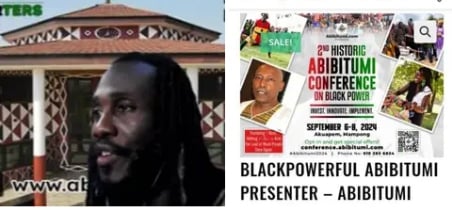The historical journey of African civilizations is deeply intertwined with the European presence, one marked by an enduring legacy of colonization and exploitation. From as early as 4500 B.C., Black/African societies thrived in regions such as the Nile River Valley, renowned for their monumental kingdoms, scholarly pursuits, and advanced agricultural practices. However, with the arrival of Europeans along the African coastlines from the 1400s onward, a drastic shift occurred. Europeans introduced violent tools of dominance—guns, slave castles, and ships—fueling the systemic enslavement of African peoples. This brutal form of chattel slavery is considered one of the worst in history, taking root in a framework predicated on racism and exploitation. This history of subjugation not only impacted the indigenous populations of Africa but also the descendants of those forcibly removed from their homeland, a situation that continues to resonate in contemporary global struggles for racial equality and justice.
The resistance against this oppressive legacy is a remarkable testament to African resilience. Various Pan-African movements have emerged throughout history, advocating for unity and empowerment among people of African descent. The early conferences initiated by figures like Henry Sylvester Williams, alongside prominent leaders such as Marcus Garvey and W.E.B. Du Bois, paved the way for greater collaboration and solidarity in the fight against colonialism and for a global Pan-African identity. Significant milestones include the endeavors of President Kwame Nkrumah and Emperor Haile Selassie’s Organization of African Unity (OAU), aimed at fostering unity and cooperation across African nations. Such movements challenge narratives of inferiority and strive to present an empowered African identity on the world stage.
Central to the Pan-African struggle is the concept of Sankofa, which emphasizes the importance of learning from the past to shape a better future. This African-centered approach encourages critical analysis of Black history and scholarly endeavors applicable to present-day pursuits such as nation-building and revitalization of African societies. In Ghana, initiatives led by the National Council for Curriculum and Assessment (NaCCA) seek to integrate such teachings into educational systems, ensuring that future generations understand their heritage. The importance of African-centered learning is underscored by events like the Historic Abibitumi Conference, which not only honors African educators and activists but also fosters community engagement through dialogue on the past and the visions for Africa’s development.
In a recent celebration of African learning and culture, the Abibitumi Headquarters in Ghana hosted the second Historic Abibitumi Conference. With Dr. Obadele Kambon leading the event, the gathering welcomed a diverse group of African-centered educators to share their insights and experiences. The conference featured discussions and activities aimed at enriching understanding of African history and its impact on societal structures today. Awards were presented to notable figures in education and activism in recognition of their contributions toward uplifting the Black community in Ghana and beyond. This event emphasizes the collective commitment to honoring African achievements and the significant role education plays in dismantling colonial narratives.
Outreach to notable leaders and members of the community, including traditional chiefs and Olympians, highlighted the event’s significance. Their participation exemplified a unified vision for African advancement and the acknowledgment of the need for continuous grassroots efforts in education and activism. Furthermore, the recognition of awardees serves as an inspiration for other community members to engage in scholarly pursuits and civic responsibilities, reinforcing the belief that individual actions contribute to a broader movement for change. By celebrating African culture and history through gatherings like the Historic Abibitumi Conference, participants are propelled to actively engage in their communities and the ongoing quest for an empowered and united Africa.
As the narrative of African history and struggle continues to evolve, the importance of preserving and propagating this rich heritage stands paramount. The works of scholars and activists like Dr. K. Makeda Muhammad, who has significantly contributed to Pan-African discourse, underline the necessity of African studies within educational frameworks. By promoting African perspectives, the next generations can embrace their identity and heritage while confronting the social challenges that persist today. This holistic approach empowers not only individuals but also communities, creating vibrant networks of support and collaboration focused on sustainable development and upliftment. In turn, this enhances the global Pan-African movement and nurtures a future rooted in solidarity, resilience, and a profound understanding of the African legacy.














